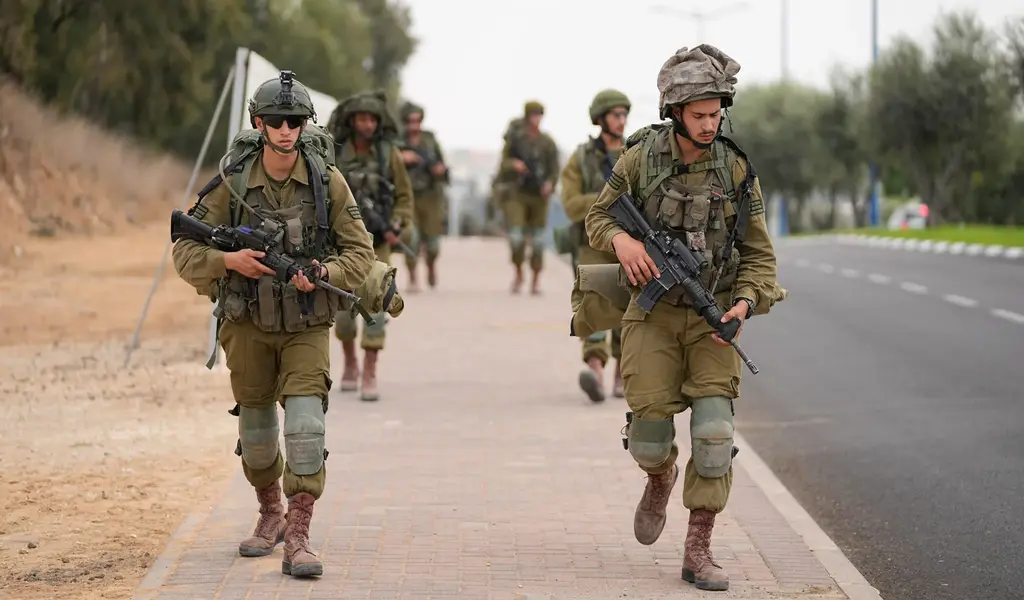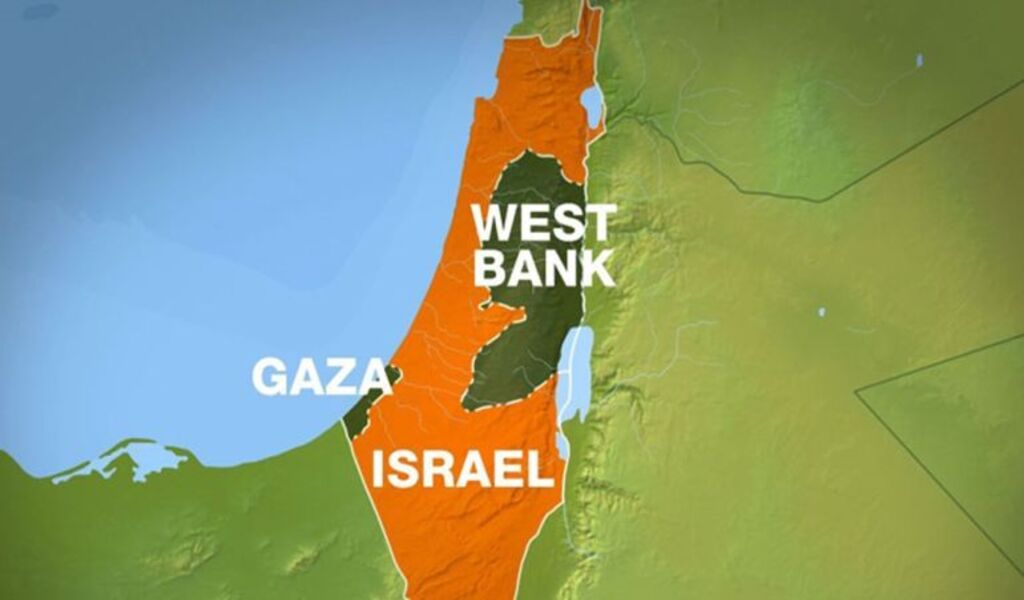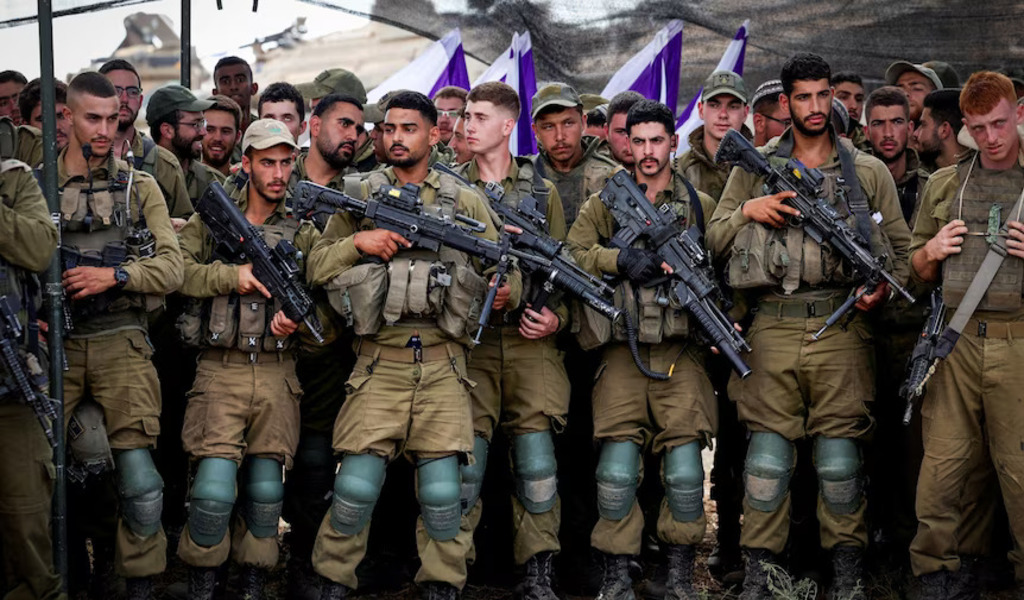News
What Factors Have Delayed An Israeli Ground Invasion Of Gaza?

(CTN NEWS) – The current period of uneasy calm may be a sign that there is a deadlock or stalemate in decision-making between Israel’s civilian leaders and its military.
The situation appears to be marked by uncertainty and a lack of clear action, possibly reflecting disagreements or differing views on how to proceed, particularly with regard to a ground invasion of Gaza.
This state of affairs may be a result of complex political, strategic, and humanitarian factors that require careful consideration and negotiation before any major military operation is launched.
Nearly three weeks after the Hamas attacks in southern Israel, Israel has not yet responded with its promised ground invasion.
Initial moves after the October 7 attacks conformed to political and military logic.
A national unity government was formed to demonstrate that the country is operating as one.
More than 350,000 reservists were called to arms.
Relentless bombing of Gaza started immediately although to this day it is hard to discern any military justification or pattern in the pounding of Palestinian infrastructure and killing of thousands of civilians.
Despite angry demands from Israeli society, especially its radical factions, for a massive response and total annihilation of Hamas, analysts, myself included, warned that preparations for a ground war take time.
Realistic calculations were that Israel would be ready in 10 to 15 days. Nothing happened.
Half a million armed men and women remain positioned all over Israel and the occupied West Bank, but the momentum of war seems to have diminished, almost stopped.
What happened? Why has the Israeli war machine not advanced into the Gaza Strip?
There may be many explanations, and only the Israeli cabinet and the army General Staff know them and keep them top secret.
Outsiders can only guess based on scant open sources.
We scrutinise bits of seemingly unconnected information for a pattern, subtle nuances in official statements, even body language between civilian chiefs and top military officers.
Reasons for the delay could be international or domestic, could be caused by civilian or military considerations.
The delay in Israel launching a ground invasion into Gaza could be due to several factors.
One possibility is that Israel is giving international efforts a chance to secure the release of captives or negotiate a ceasefire.
However, this seems unlikely because the resolve to avenge the victims of the October 7 attacks appears unwavering.
The Israeli government may be skeptical about the effectiveness of international initiatives in achieving a peaceful resolution.
From a military perspective, the delay is unlikely to be due to insufficient forces.
Israel can quickly mobilize additional trained reservists if needed.
It is also improbable that the delay is related to the readiness of Israeli troops for urban warfare and tunnel combat.
The military’s General Staff would have assessed the preparedness of its forces for these scenarios before the October 7 mobilization.
The reasons for the delay in a ground invasion are complex and may involve a combination of international pressure, the desire to explore peaceful alternatives, and concerns about the potential human and infrastructure costs of such an operation.
The situation remains fluid, and Israel’s decision-making process is known only to its government and military leadership.
Ominous Lull
General Herzi Halevi, the head of the Israeli General Staff, and his colleagues are likely feeling uneasy.
They have around half a million soldiers waiting restlessly, unsure of their mission and when or how they’ll be deployed.
In any army, uncertainty and indecision are detrimental to morale.
While in peacetime, soldiers are often assigned menial tasks to keep them busy and focused, during war, waiting in uncertainty can erode combat readiness.
So, why is Israel’s military leadership allowing its forces to remain uncertain about their purpose?
The cause seems to be a discord between Prime Minister Benjamin Netanyahu and Defense Minister Yoav Galant on one side and Halevi and his commanders on the other.
Throughout history, military officers have desired clear, well-defined orders, free from ambiguity and uncertainty.
When civilian leaders order military action, they need to lay out strategic objectives and fallback options in case primary goals become unattainable.
Generals want written orders, allowing for accountability in case of failures.
In Israel’s case, the military brass wants the government to provide clear directives regarding the mission’s expectations and the acceptable level of losses and casualties.
Matkal, the General Staff, can plan for all scenarios, but it requires clarity on policy.
If, for instance, the government decided to expel all Palestinians from Gaza or occupy specific areas, the military would need to calculate and prepare the necessary force levels and deployment plans for various outcomes, ranging from easy victory to difficult scenarios with high casualties.
The current uncertain pause could indicate a standoff between civilian authorities and the military.
While it’s speculative, Netanyahu’s approach may be to pressure the military into action with vague orders, perhaps along the lines of “initiate action, target Hamas fighters, and adapt as the situation develops.”
On the other hand, the military may feel a responsibility to its troops and junior officers, resisting action based on unclear instructions that the military sees as irresponsible.
For these reasons, it’s unlikely that this state of uncertainty can persist much longer.
Israel must either launch a significant offensive shortly or announce its postponement, possibly indefinitely.
MORE RELATED NEWS:
Dinosaur Footprints Discovered on the Beach of the Isle of Wight, England
On Nov 2, IMF team to visit Pakistan for first review talks
US rejects Israel-Gaza ceasefire as Hamas released 2 female hostages































